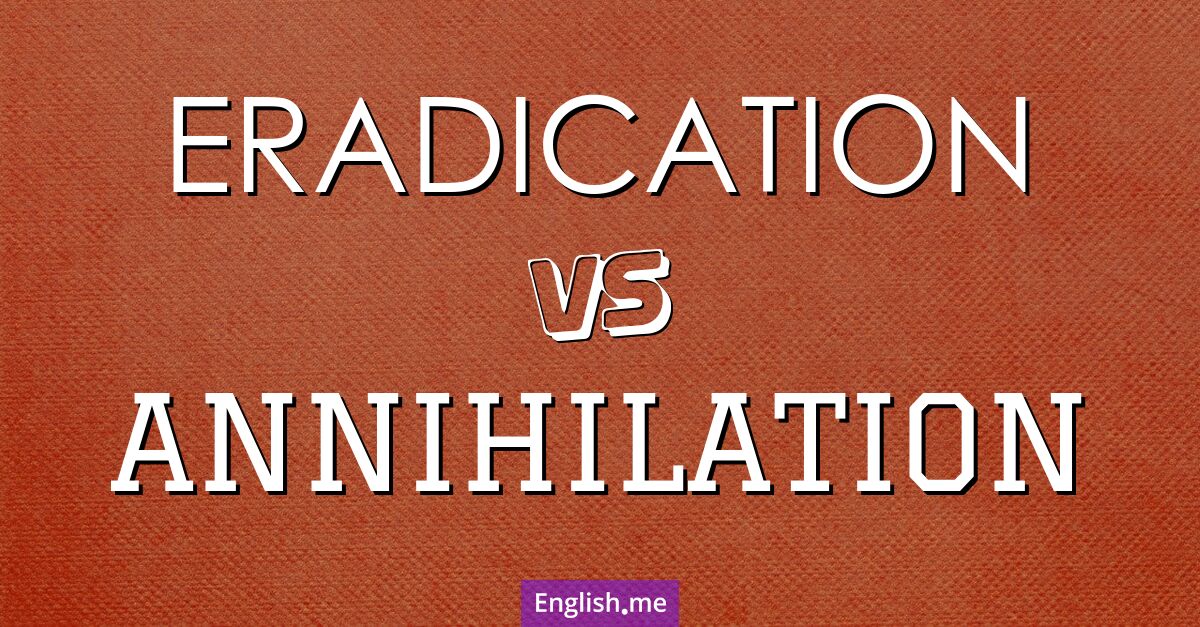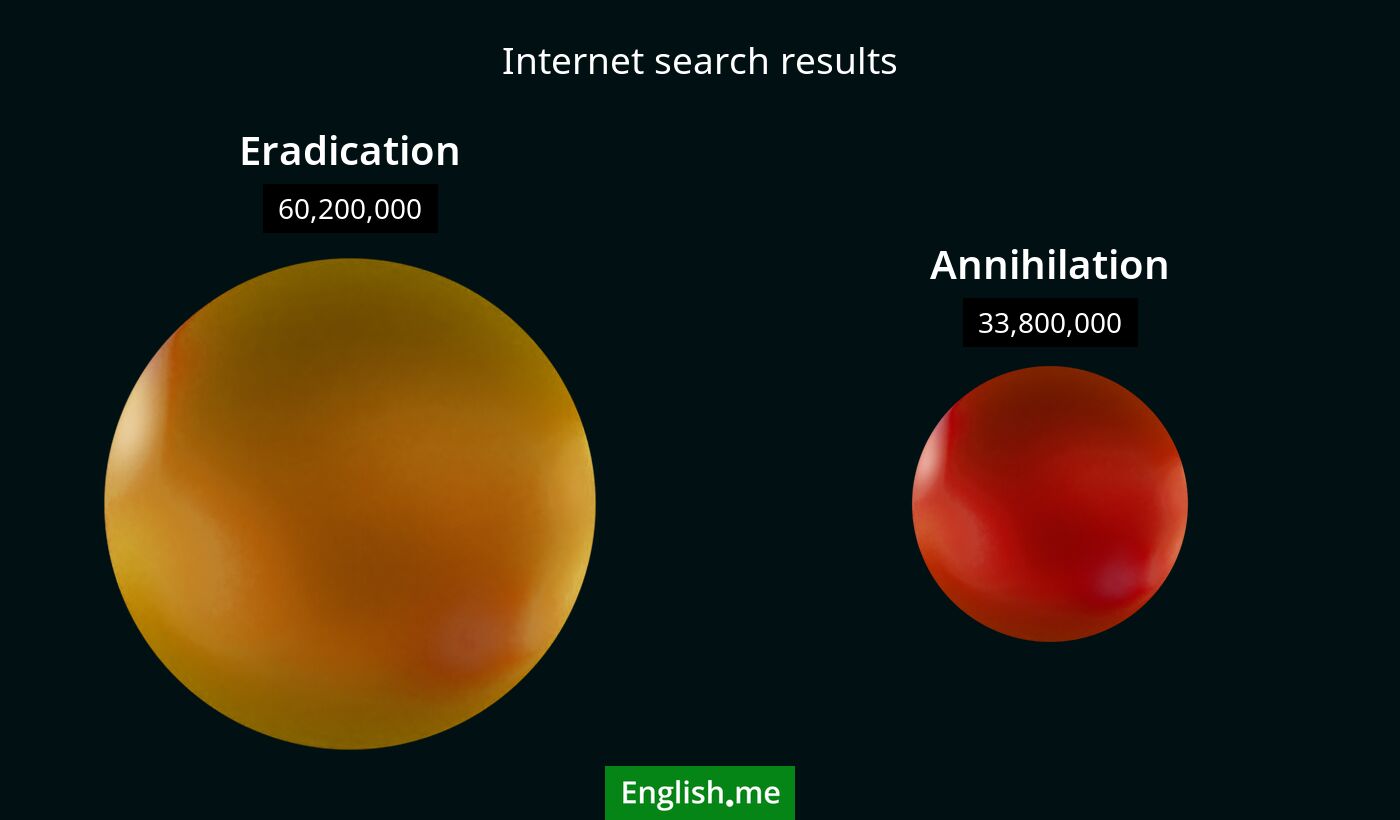"Eradication" vs. "annihilation": nuances of elimination
Reviewed and edited by  Anwar Kareem 26/10/2024, 12:39
Anwar Kareem 26/10/2024, 12:39
English.me team member

 What is similar?
What is similar?
Both "eradication" and "annihilation" refer to the complete destruction or removal of something. They imply a thorough and total end to whatever is being targeted, often used in contexts where something is eliminated permanently.
 What is different?
What is different?
"Eradication" typically implies the removal or destruction of something undesirable, often used in the context of diseases, pests, or social problems. It is associated with a process that is often deliberate and methodical. "Annihilation," on the other hand, suggests total destruction, often used in a more dramatic or violent context, such as in warfare or science fiction scenarios where entities are obliterated.
 Which one is more common?
Which one is more common?

 Examples of usage
Examples of usage
Eradication- The eradication of smallpox was a significant achievement for global health.
- Efforts are underway to achieve the eradication of invasive species from the island.
- The government launched a program aimed at the eradication of poverty.
- The science fiction novel depicted the complete annihilation of the alien race.
- The bomb's explosion led to the annihilation of the city.
- Philosophers often debate the concept of existential annihilation.

 English
English español
español française
française italiano
italiano deutsche
deutsche 日本語
日本語 polski
polski česky
česky svenska
svenska Türkçe
Türkçe Nederlands
Nederlands